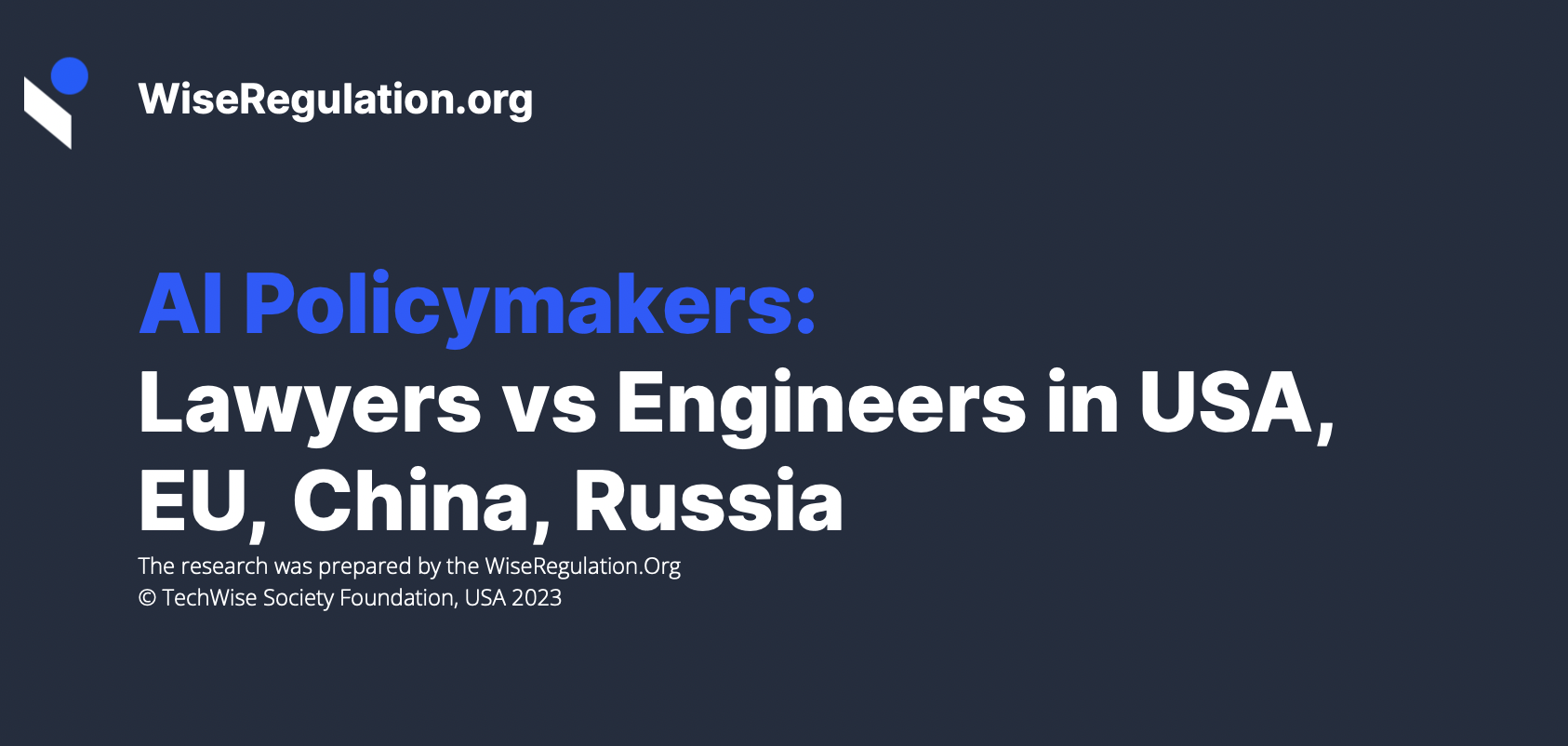Background of AI Policymakers: Lawyers vs Engineers in USA, EU, China, Russia
30. 06. 2023

In May 2023 we prepared a map of AI stakeholders and policymakers, where we created a diverse ecosystem of stakeholders shaping AI governance, empowering responsible and inclusive AI innovation.
Now we decided to move further and our researchers investigated the education and work background of policymakers of key countries, as it’s obvious that their experience affects the priorities and approaches to the regulation and development of AI in these countries.
We analyzed the breakdown of education and work experience of key people in regulatory bodies that deal with the regulation and policymaking of AI in the USA, United Kingdom, China, the EU and Russia, distinguishing between technical (computer science, physics, math and other technical education) and non-technical degrees(law, economics, etc), as well as the existence of work experience in the industry (AI, programming, academics).
Detailed results can be found in the appendix.
In this summary we want to share some key insights:
- The majority of AI policymakers in China and russia have higher technical education (61.1% in China and 54.5% in russia);
- The majority of AI policymakers in the EU and the UK hold non-tech degrees (88.5% in the EU and 82.3% in the UK), while in China – 38.9% only;
- China and russia have the highest percentage of AI policymakers with a practical background in AI, computer science etc. (61.1% in China and 54.6% in russia), while EU has only 5.8%;
- In the USA, surprisingly, the key bodies for the regulation and development of AI policies are quite well balanced in terms of work experience and education (37.7% of government officials in the USA have engineering work experience and 37.7% have STEM education);
- As we can see, the historical balance of technical vs humanitarian experts depends on where the AI regulation initiative originated historically. If in the parliament, as a rule, most of the professionals from bodies and councils still have a legal or other humanitarian background. If in the government, then the number of participants with engineering and tech expertise with practical work experience is much larger.
Considering the situation with the effectiveness of AI regulation (and overregulation), we recommend increasing the number of experts with practical experience in AI and STEM education, since it’s impossible to regulate technologies without understanding what these technologies can or cannot do and how they affect human rights, society, etc.
However, countries with more authoritarian systems (China and russia) clearly gravitate towards the organizational model when the overwhelming majority in the field of AI policymaking has a STEM background.
Therefore, against the background of other key countries, the USA probably achieved a fairly effective balance and diversity of backgrounds.
Detailed results can be found in the appendix.
Best regards,
The WiseRegulation.org team